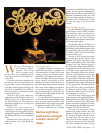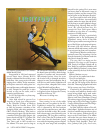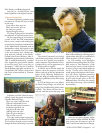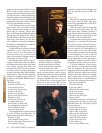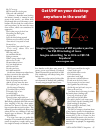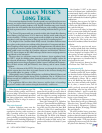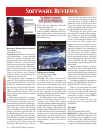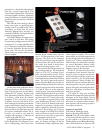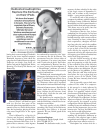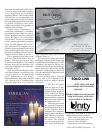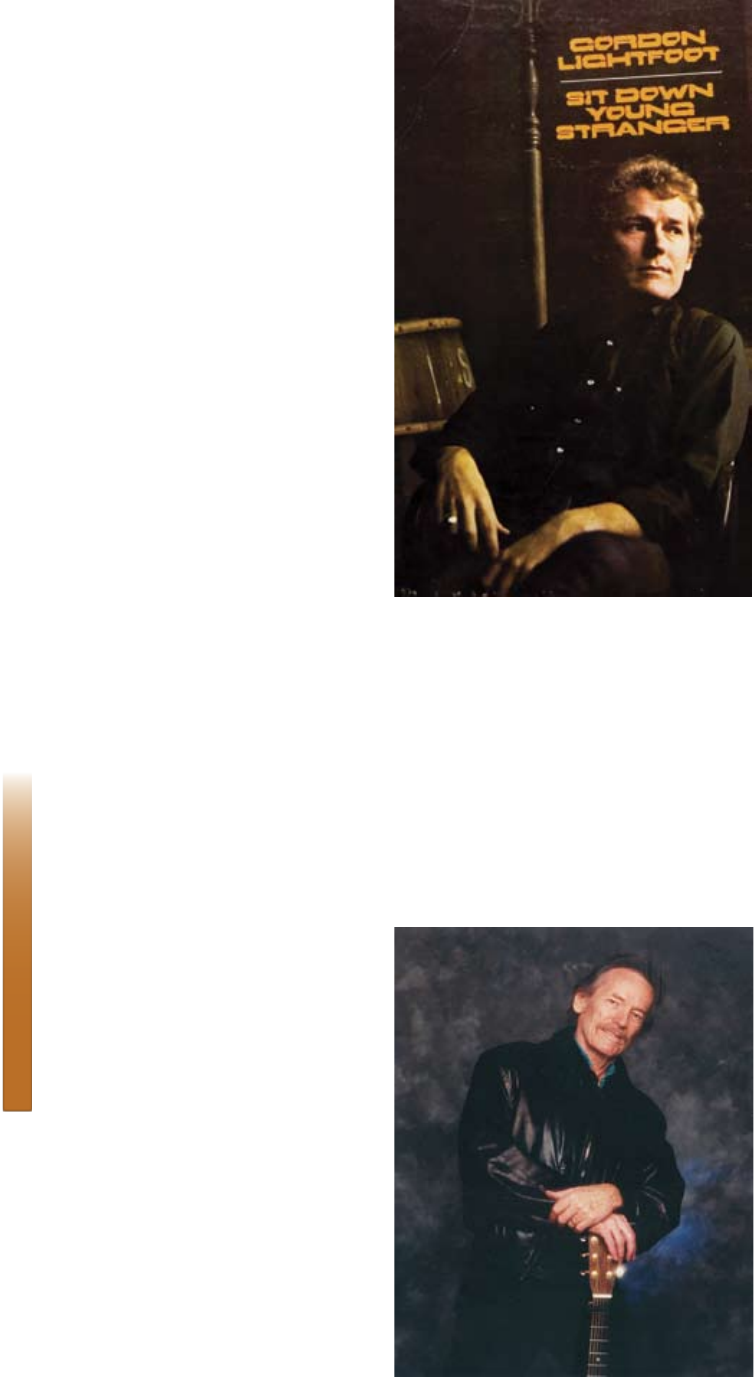
Feedback
Software
major American concert halls (Carnegie
Hall and the Lincoln Center), across
Canada, and to the various summer festi-
vals. He is by now a virtuoso guitarist on
both the six and twelve string guitar. His
record collection grows to prodigious
proportions, and many of these record-
ings score phenomenal successes.
A few favorites come to mind, songs
that became hits and remain young.
There’s Summertime Dream, at once
poetic and, yes, dreamy. There’s Sun-
down, a 1974 song about infidelity, which
hits top spot on US pop charts. There’s
Did She Mention My Name from 1968.
And there’s Don Quixote, for the hero
who symbolizes a search for absolutes,
for whom our troubadour has an admira-
tion bordering on affection.
To add to his heavy calendar, Gordon
Lightfoot is also a humanist, who
answers present to solicitations for
numerous social or environmental
causes. An example: his famous song on
the Detroit race riots of 1967.
It had begun before dawn on the 23
rd
of July, a confrontation between Blacks
and whites that turned into a full-scale
riot, ending only five days later, and
leaving a heavy toll. There were numer-
ous dead, many wounded, thousands
arrested, and more than 2000 buildings
burned down. The infamous uprising
resulted in a Lightfoot song, which can
be found on the album Did She Mention
My Name?
Black day in July
And the soul of motor city
is bared across the land
As the book of law and order
is taken in the hands
Of the sons of the fathers
who were carried to this land
Black day in July
In the streets of motor city
is a deadly silent sound
And the body of a dead youth
lies stretched upon the ground
Upon the filthy pavement
No reason can be found
The song Black Day in July is released
in April of 1968…not long after the
assassination of Matin Luther King.
Black day in July
In the mansion of the governor
There’s nothing that is known for sure
The telephone is ringing
And the pendulum is swinging
And they wonder how it happened
And they really know the reason
And it wasn’t just the temperature
And it wasn’t just the season
In Top 40 stations across the US
there is a wind of panic, and the song is
quickly boycotted, lest it stir up passions
that are already overheated. As you can
imagine, Lightfoot flies into a fury. “A
lot of them don’t want to upset their
listeners,” he says on the CBC. “It’s the
housewife in the morning, let’s give her
something that’ll make her happy, why
give her something that’ll make her
think?”
A romantic?
How do you categorize an artist like
this? Is he country? Folk? Pop, pop-
rock? Why pigeonhole him at all? Is he
not beyond all styles?
What is certain is that he ceaselessly
searches for the perfect song. He will
take hours, days, months to perfect a
song. He cares for his musicians, making
their work easier by giving them scores
as faultless as he can make them.
Let us not mince words, then, Gordon
Lightfoot is a romantic. He harnesses
his poetic prose to exorcise his hyper-
sensitivity to suffering, that of others or
his own, and his very vulnerability is a
source of pain. It is, on the other hand,
his sensitivity that allows him to respond
to all solicitations, to react to joy and
beauty in all its forms. Stories of love,
barely disguised personal experiences,
anecdotes…each text provides, inside a
meaningful melody, a story or a mood.
The aura about him is due in large
part, I believe, to his genius for sharing
with his audiences his emotions, his
propensity for dreaming, his love of love
itself, his intimate connection with the
elements of nature. Water, for example,
plays a major role in his songs, as do the
forest and the wind…a waterfall deep in
the forest, the gurgling of the water…
Now if only you could see
The closin’ of the day
If only you could be
Where the dawn breaks away
By the white cascade
Oh down in the glade
Where the long river flows
By my window
He dreams of leaving…the whistle of
a passing train, the roar of a jet tearing
the fabric of the sky. This song is one of
his most famous:
In the early mornin’ rain
With a dollar in my hand
And an achin’ in my heart
And my pockets full of sand
I’m a long way from home
And I miss my loved one so
In the early mornin’ rain
With no place to go
Out on runway number nine
66 ULTRA HIGH FIDELITY Magazine








